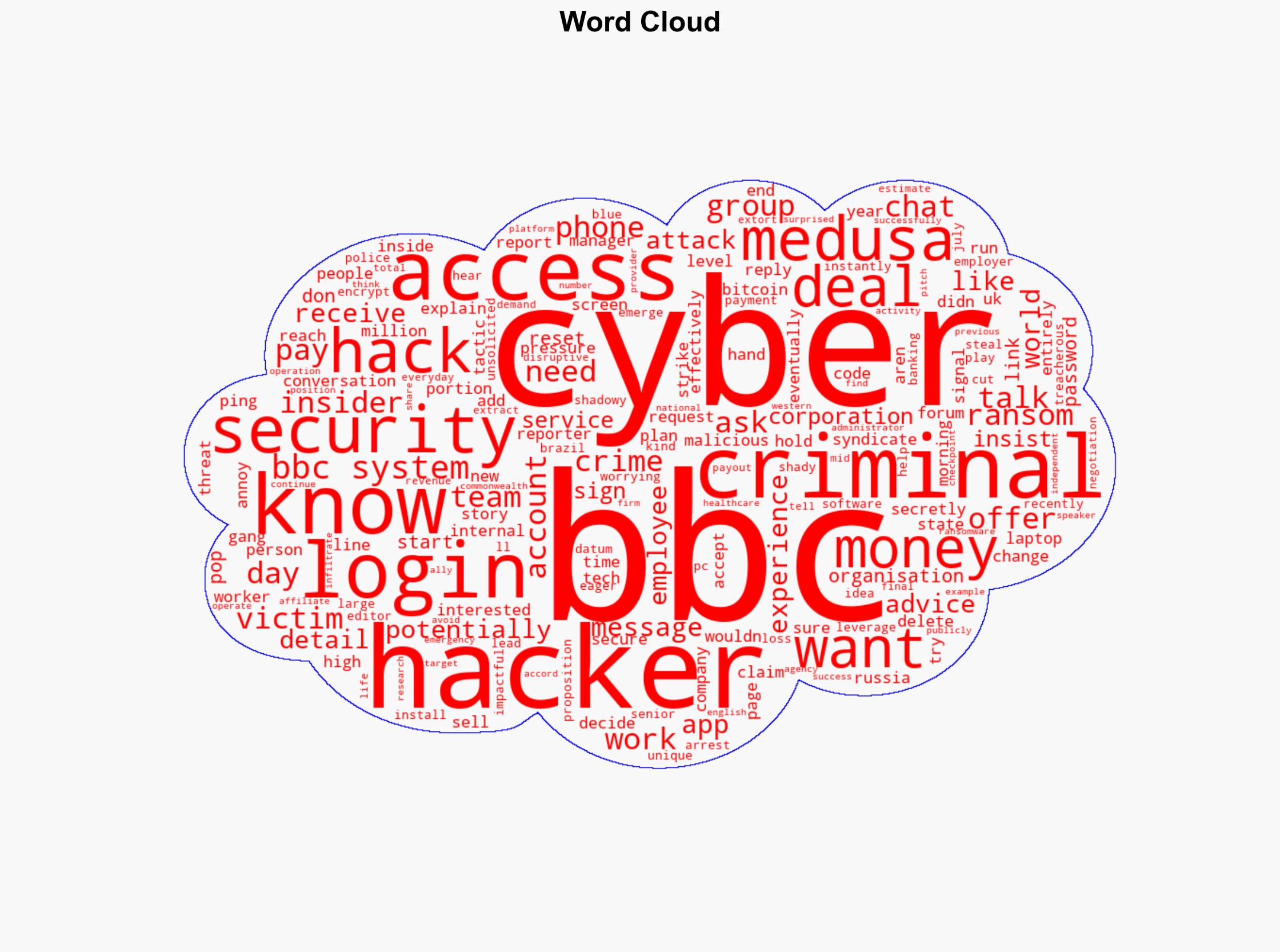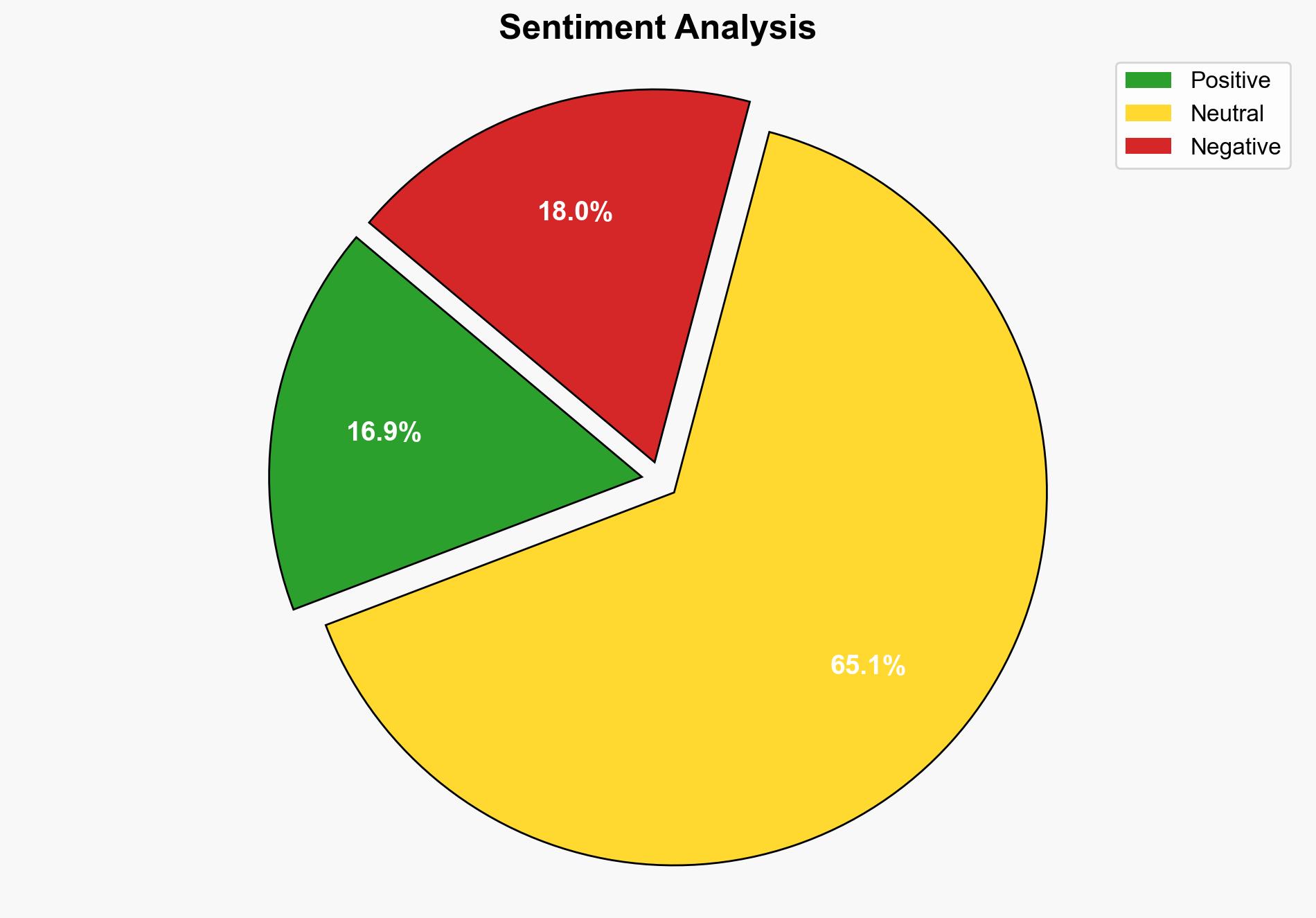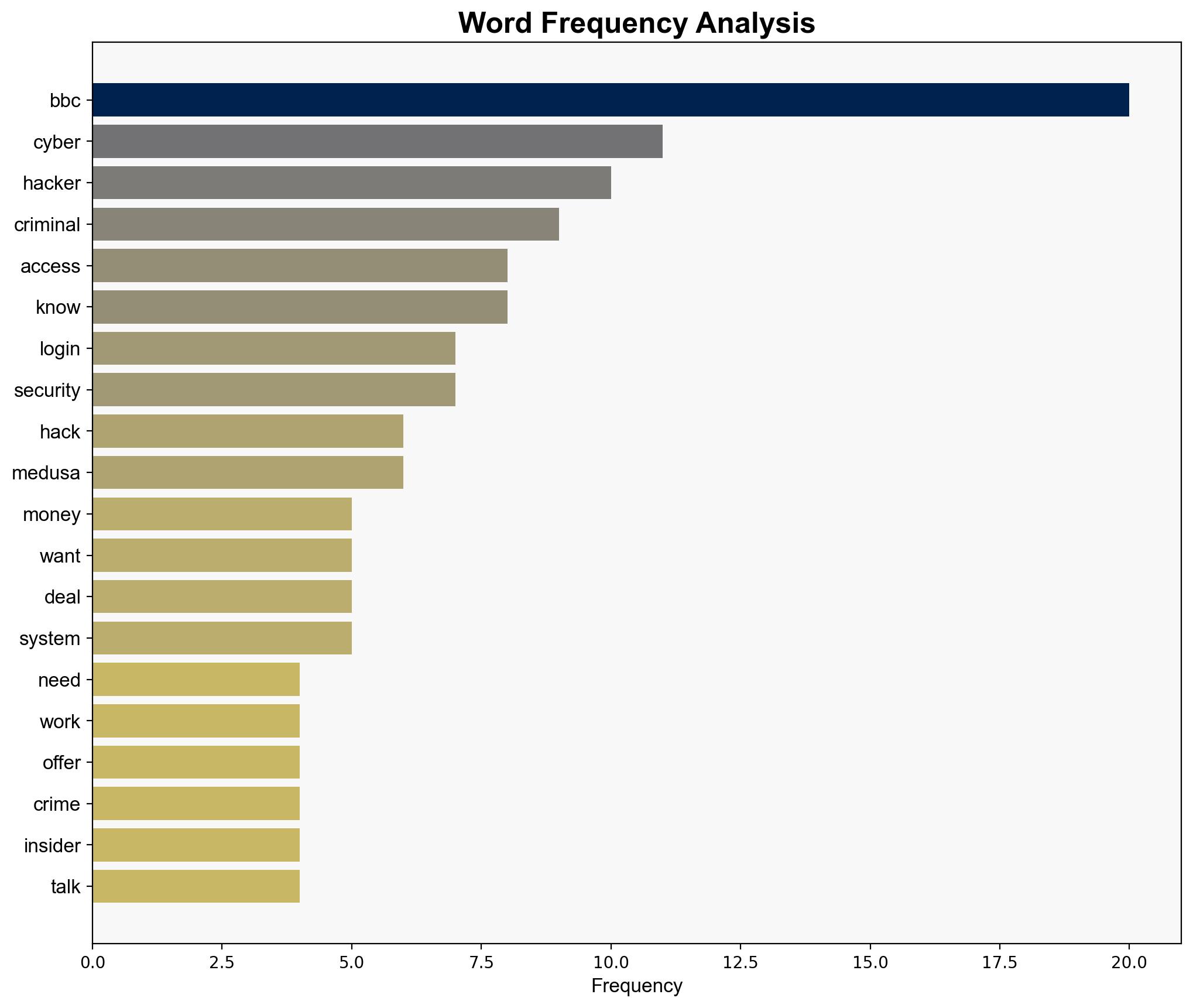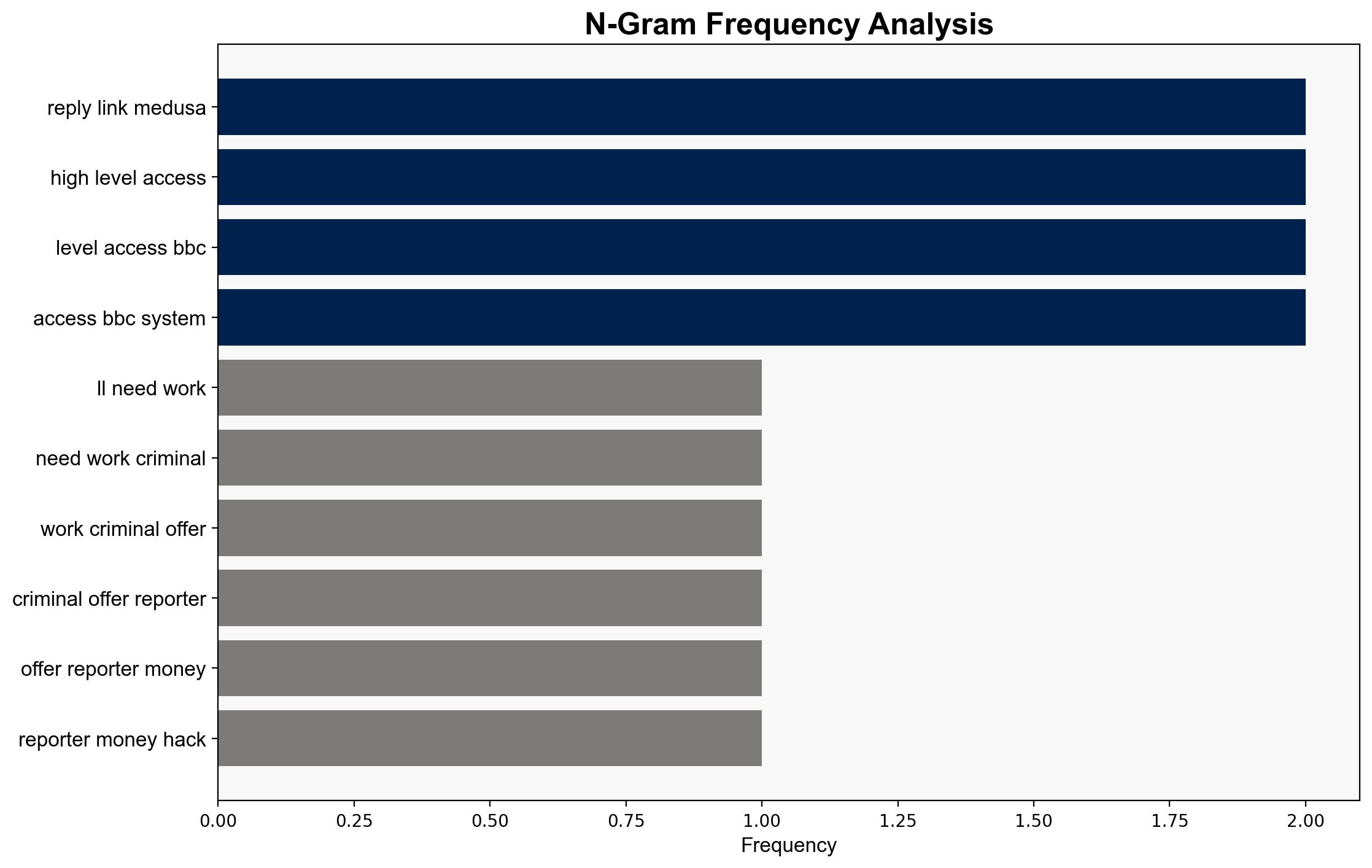‘You’ll never need to work again’ Criminals offer reporter money to hack BBC – BBC News
Published on: 2025-09-29
Intelligence Report: ‘You’ll never need to work again’ Criminals offer reporter money to hack BBC – BBC News
1. BLUF (Bottom Line Up Front)
The most supported hypothesis is that a cybercriminal group is actively seeking insiders to facilitate a ransomware attack on the BBC, leveraging insider access to bypass external defenses. Confidence level is moderate due to the lack of direct evidence linking the group to previous successful attacks. Recommended action includes enhancing internal cybersecurity protocols and employee awareness programs to mitigate insider threats.
2. Competing Hypotheses
1. **Hypothesis A**: A cybercriminal group is attempting to recruit insiders within the BBC to facilitate a ransomware attack, aiming to exploit insider access for financial gain.
2. **Hypothesis B**: The communication is a phishing attempt or scam targeting journalists, designed to extract sensitive information or financial gain without an actual intent to execute a cyberattack.
Using the Analysis of Competing Hypotheses (ACH) 2.0, Hypothesis A is better supported by the context of the message and the mention of previous successful insider deals. However, Hypothesis B cannot be entirely dismissed due to the lack of direct evidence of the group’s capabilities or past successes.
3. Key Assumptions and Red Flags
– **Assumptions**: It is assumed that the group has the capability and intent to execute a ransomware attack if insider access is obtained. Another assumption is that the communication is genuine and not a decoy or false flag operation.
– **Red Flags**: The lack of verifiable details about the group’s past successes and the potential for the message to be a phishing attempt or misinformation.
– **Blind Spots**: Limited information on the group’s operational history and the potential involvement of state actors or proxies.
4. Implications and Strategic Risks
The potential for a successful insider-facilitated attack on the BBC poses significant risks, including operational disruption, reputational damage, and financial loss. The broader implications include increased targeting of media organizations by cybercriminals and the potential for cascading effects on public trust in media integrity. Geopolitically, such attacks could be leveraged to influence media narratives or sow discord.
5. Recommendations and Outlook
- Enhance internal cybersecurity training and awareness programs to mitigate insider threats.
- Implement stricter access controls and monitoring of sensitive systems and data.
- Conduct regular security audits and penetration testing to identify vulnerabilities.
- Scenario-based projections:
- Best Case: The attempt is thwarted through proactive security measures, and no breach occurs.
- Worst Case: An insider facilitates a successful ransomware attack, leading to significant operational and reputational damage.
- Most Likely: Increased vigilance and improved security measures prevent the attack, but attempts continue.
6. Key Individuals and Entities
– The cybercriminal group referred to as “Medusa.”
– The unnamed reporter targeted by the group.
7. Thematic Tags
national security threats, cybersecurity, insider threat, media integrity, ransomware





